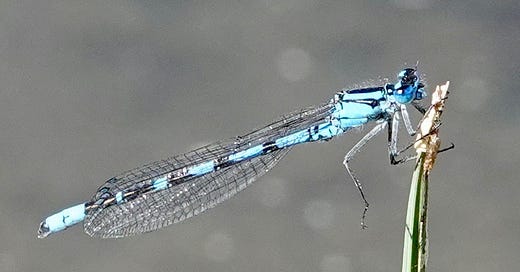Stop Chasing The Sustainability Phantom!
The global extinction crisis is worse now than ever, yet many conservationists still pin their hopes on "sustainable development."
The notion of sustainable development emerged about 40 years ago, when the world's human population was about 56% less than it is now, and its gross domestic product a third less. With the needs of just one species in mind (us), the term was formally defined by the UN’s World Commission on Environment and Development as that which “meets the needs of the present without compromising the ability of future generations to meet their own needs.”
Few argued with that definition. Conservationists cheered the opportunity to achieve their goals within the established economic framework, world leaders were happy that conservation would focus squarely on human needs, and developers envisioned far less political conflict along the road to growth without limits. Sustainable development was seen as a win-win to be achieved by the year 2000.
Forward to 2021: Humanity’s needs have not been met, and the wellbeing of future generations has been seriously compromised. Beyond that, it should be clear to anyone paying attention that global efforts to save more-than-human life on Earth have pretty much failed. The extinction crisis is a lot worse.
Yet influential conservationists today still profess to believe that if we only develop better, or “build back better,” all will be well. No need to ruffle feathers by challenging failed conventional wisdom.
Consider this article from the IUCN, the world's biggest conservation organization:
Headline: Dragonflies threatened as wetlands around the world disappear.
Lead paragraph: Gland, Switzerland, 9 December 2021 (IUCN) – The destruction of wetlands is driving the decline of dragonflies worldwide, according to the first global assessment of these species in today’s update of the IUCN Red List of Threatened Species™. Their decline is symptomatic of the widespread loss of the marshes, swamps and free-flowing rivers they breed in, mostly driven by the expansion of unsustainable (my emphasis) agriculture and urbanisation around the world.
Never mind that sustainability as defined has absolutely nothing to do with meeting the needs of dragonflies, living today or future generations. Never mind that there’s not a shred of evidence to suggest that continued expansion of agriculture and urbanization will help save dragonflies. So why the heck insert the modifier “unsustainable” before development when the problem is development?
Dr Viola Clausnitzer, Co-chair of the IUCN SSC Dragonfly Specialist Group adds:
“To conserve these beautiful insects, it is critical that governments, agriculture and industry consider the protection of wetland ecosystems in development projects (my emphasis), for example by protecting key habitats and dedicating space to urban wetlands.”
Never mind that development projects cause the destruction of wetlands, that governments and industry do not protect dragonflies when it conflicts with economic goals.
More grim news (again my emphasis): The assessment of the world’s dragonflies and damselflies reveals that 16% out of 6,016 species are at risk of extinction, as their freshwater breeding grounds increasingly deteriorate. In South and Southeast Asia, more than a quarter of all species are threatened, mostly due to the clearing of wetland and rainforest areas to make room for crops such as palm oil. In Central and South America, the major cause of dragonflies’ decline is the clearing of forests for residential and commercial construction. Pesticides, other pollutants and climate change are growing threats to species in every region of the world, and are the greatest threats to dragonflies in North America and Europe.
Sorry to say, but the IUCN’s holy grail has not — and will not — end “clearing” of natural habitats. However politically incorrect it might be, it's time to put the sustainability ghost to rest.




“Meet the needs of the present without compromising the ability of future generations to meet their own needs.” A great objective, _sine_qua_non (without which, nothing). However, TONY you say this is a formal UN definition for 'sustainable development' ?? That is a TERRIBLE definition for sustainable development! IT will lead to covering the planet with humans, livestock and crops -- and nothing else! Thanks for your wake up post.
Makes one wonder, "Are buffoons running the world?"